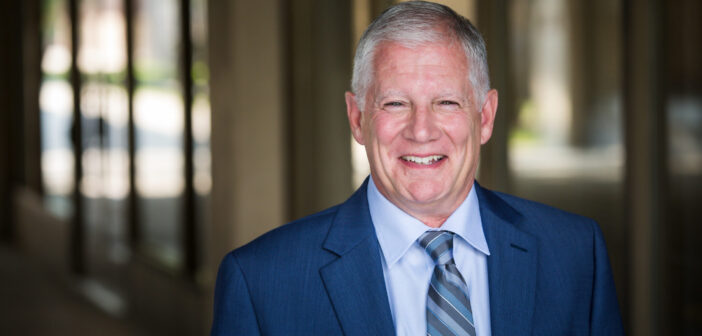The Lehigh Alumni Club of D.C. hosted a conversation with Brian Fife, Lehigh professor and chair of the political science department, to speak on the importance of civic participation on Oct. 20.
Over 100 people registered for the virtual “Power of Your Vote” event. Fife spoke for the first 30 minutes of the evening and allowed the last half hour to be open for a question and answer session with alumni.
Fife emphasized the power of voting falls in the people’s hands since so many major policy decisions lay at stake. Fife informed attendees that the presidency, 35 out of 100 seats in the Senate and all 435 seats in the House of Representatives will be up for election this year.
Prior to the virtual discussion, Fife planned to center the conversation around the need for increased awareness about our government leaders, who affect all citizens with their position of power.
However, Fife said he decided to steer the conversation toward a long-term plan for people to engage more with their democracy and national politics.
“There are many in this country that believe that if we did a better job at civic engagement, especially at younger ages in our educational systems, then we would have more citizens participate in our democracy,” Fife said. “Everyone is affected, and that’s the bottom line with public policy, so we all have to do a better job collectively.”
Hillary Stires, ‘10, president of the D.C. Club, helped to lead and organize the event.
The group consists of seven people who meet on a regular basis to brainstorm possible networking events to unite Lehigh parents and alumni residing in D.C., Maryland and Virginia.
Stires said the discussion was a relevant and timely opportunity regarding the upcoming election and therefore a great way to bring together Lehigh alumni to hear Fife’s message.
“I think the thing that I really resonated with was his conversation about civic duty,” Stires said.
Stires said she appreciated hearing Fife’s suggestion of attending PTA meetings in order to understand how children today are being educated.
The large majority of attendees consisted of Lehigh alumni, some of whom found themselves even more passionate about involvement within our democracy after hearing Fife’s insights than they were before.
Chris Burgess, ‘96, enjoyed listening to Fife’s take on civic participation from his deep research in American politics.
“Being an engineer, I do like to take a rational approach to things, and I wanted to hear his perspective on the current state of politics and how that compares to politics historically,” Burgess said. “He was very up to speed with what races around the country were critical, were battleground races, which states and congressional races were more important than others, shall we say. The diversity of his knowledge really impressed me, and it was really insightful to understand why the Constitution was written the way it was.”
Peter Schutz, ‘77, felt he gained a lot from the conversation.
Schutz was appalled to know that our country’s voting percentage as a whole is less than that of other democratic nations.
He found the crux of the problem to be the amount of civic participation, as well as the lack of education pertaining to voting. Schutz believes our society is too narrowly focused on entertainment rather than focusing on our responsibility to stay informed about government affairs.
“I never got educated on civics,” Schutz said. “A lot of schools don’t have civics courses, and (Fife) said only about 29 percent of people in our country could even identify our three major government institutions.”
Lindsay Drake, ‘05, associate director of College Affinity and Faculty Engagement, works in Alumni Relations and helped to coordinate the event.
“We’re pretty intentional with trying to create events and gatherings and ways to reach alumni that are hot topics or topics in the news,” Drake said.
Drake said the fact that only 55 percent of U.S. citizens registered to vote actually do vote, on average, stuck out to her.
“I was happy to hear that (Fife) is doing some work to try to get civics taught in public schools again, because if you look at that statistic and wonder why that is, I think that could be a real contributing factor,” she said.
Robert Leggett, ‘75, feels strongly about the problem of voter suppression and the lack of leadership he believes America faces at the moment.
“This is probably the most important election in my lifetime, and it’s critically important for people, I think, who see what’s going on and are concerned about what this administration is doing to our democracy,” Leggett said. “They should get involved to the extent that they can.”
Regarding the 2020 election, attendees learned that the pandemic and race relations are the most prominent issues in the eyes of the nation’s Democrats, while the most important issues to Republicans are the economy and criminal justice, Fife said.
Overall, a September national poll by the Kaiser Family Foundation revealed that the list of most important policy issues to registered voters showed the economy coming in at number one, followed closely by the pandemic.
Fife, however, relayed two major issues that were not found on this national list but proved worthy of concern to him: climate change and growing national debt.
Fife teaches American politics and public policy and has already written multiple books about education, elections, and poverty. His latest book, Citizenship in the American Republic, is to be published in March 2021 and will revolve around civic engagement.
“Your job as a citizen doesn’t end when you go vote,” Fife said. “You always have to know what’s going on, and you have to develop your own ideas, your own vision of what’s the proper use of government in our society.”






Comment policy
Comments posted to The Brown and White website are reviewed by a moderator before being approved. Incendiary speech or harassing language, including comments targeted at individuals, may be deemed unacceptable and not published. Spam and other soliciting will also be declined.
The Brown and White also reserves the right to not publish entirely anonymous comments.